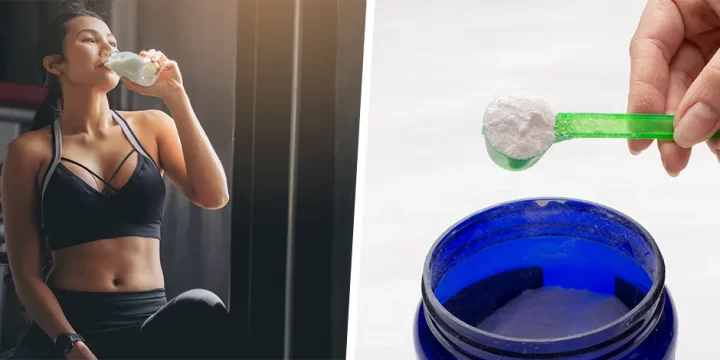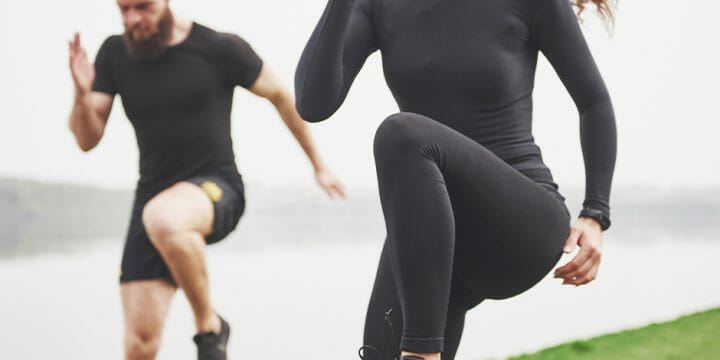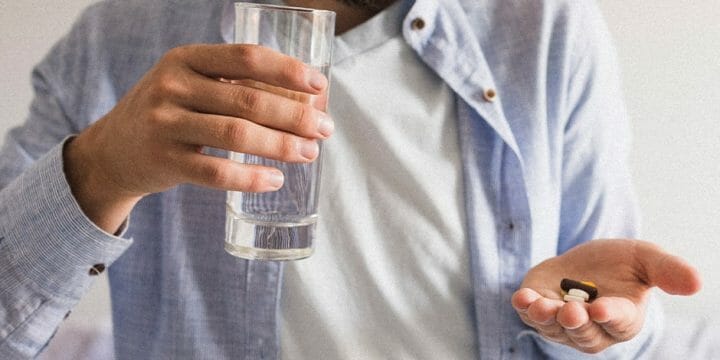Having a shower after a workout and a short cool-down phase can be a highlight for any training session.
As a personal trainer, I get all my clients to carefully plan their post-workout routine to avoid muscle soreness. And one of the questions I often get is how long people should wait before they head for a shower.
So, I teamed up with a physiotherapist to find out if there’s scientific evidence to support an ideal timing for showering with tired muscles.
Here’s what I found.
Quick Summary
- To maximize post-workout recovery, wait to shower until your heart rate and body temperature have normalized, which typically takes a short while after exercising.
- Incorporating a warm shower as part of your cool-down can help soothe muscles, as warmth aids in muscle relaxation and tension release.
- A cold-water shower for 15 minutes post-high-intensity exercise can improve heart rate recovery and reduce muscle inflammation.
- Based on my professional experience, transitioning from a warm to a cooler shower temperature post-workout aids in recovery and overall well-being.
Should You Shower Immediately After a Workout?

You shouldn't shower immediately after a workout, as it can lead to a rapid drop in body temperature and potential feelings of weakness and dizziness.
If you engage in intense workouts, showering immediately afterwards may cause your body temperature to drop too quickly. This can result in feelings of weakness and dizziness.
Therefore, it’s best to make sure you complete a full cool-down process to allow your heart rate and body temperature to come down.
Also, if you wait a few minutes to shower after a workout, you may allow your body to stop actively sweating so that you don’t end up with a sweaty t-shirt 10 minutes after you leave the gym.
“Hot water and steam serve as an instant muscle relaxer, soothing built-up tension and loosening up muscles that can tense up due to stress and anxiety.”
- Nina Kahn, Lifestyle Writer
Still, standing under warm water is a great way to further enhance your cool-down period, as described in the study published in the Journal of Strength and Conditioning [1].
In my practice, I've found that visiting a steam room or sauna post-workout can significantly aid in recovery and muscle repair, a strategy backed by research in the Journal of Applied Physiology [2].
How Long Should You Do It?
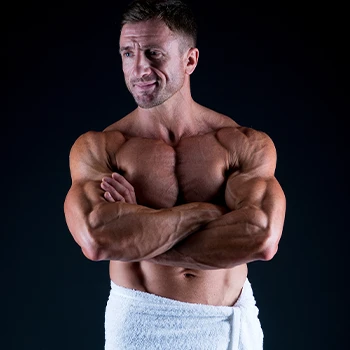
You should shower for five to fifteen minutes to enhance recovery and overall well-being. And this guideline applies to both cold and hot showers.
Research published in the Plos One journal has shown that there are general health benefits to having a cold shower [3].
Another study from the Journal of Strength and Condition Research shows that a cold-water shower for 15 minutes post-high-intensity exercise can [4]:
- improve thermal comfort
- facilitate heart-rate recovery
- reduce muscle inflammation and soreness
- have positive effects on mood and cardiovascular health
Now, I’m not suggesting going from hot and sweaty to a freezing shower. But if you go from a hot to a lukewarm temperature and then gradually to a cold, you could be helping your recovery and a general feeling of well-being.
When you gradually lower the temperature, your skin pores will close up and retain moisture.
Cold showers clear pores, remove oil and dirt, lessening breakouts and boosting skin health. The cool temperature of the water can help constrict blood vessels and reduce inflammation, which can alleviate muscle soreness and promote faster recovery.
This easy practice elevates workout benefits, leaving you feeling healthier and rejuvenated.
Learn More: Should You Take a Cold or Hot Shower After a Workout?
What Happens to Your Body When You Shower?
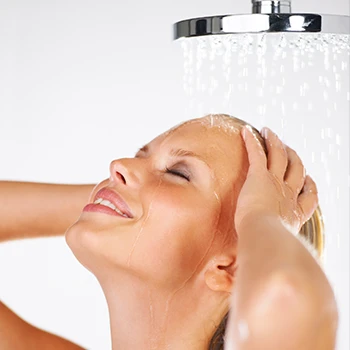
When you shower after a workout it can improve blood flow to your muscles and promote relaxation, aiding in post-exercise recovery.
While scientists don’t fully understand the process, it seems that the relaxing effect on blood vessels allows for more oxygen and nutrients to get to your muscles.
When this happens within a half-hour time frame of a workout, you can kickstart your recovery.
From my experience, allowing your body to air-dry post-shower can enhance skin moisture absorption, reducing the risk of clogged pores—a tip I regularly share with my clients.
I find that it may help the skin absorb more moisture and not clog pores.
Related Articles:
FAQs
Should You Have A Hot Or Cold Shower After Training?
You should have a hot shower after training. However, you can also gain good benefits from gradually turning down the temperature to a cold shower as part of your cool-down process.
Is There Any Benefit From Not Showering After A Workout?
No, there’s no real benefit from not showering after a workout. You’ll be smelly and sweaty, and you could be setting yourself up for skin irritations and a slower recovery period.
References:
- https://pubmed.ncbi.nlm.nih.gov/31343603/
- https://pubmed.ncbi.nlm.nih.gov/17110516/
- https://www.ncbi.nlm.nih.gov/pmc/articles/PMC5025014/
- https://pubmed.ncbi.nlm.nih.gov/31343603/
About The Author
You May Also Like
